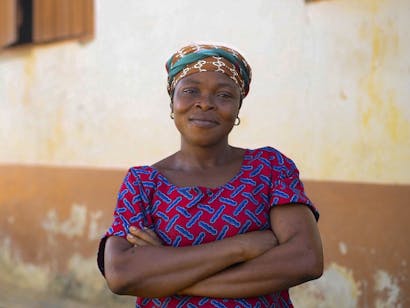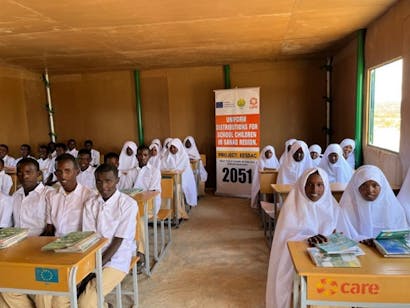Kirupalini runs her own weaving business
Kirupalini, 32, sells beautiful handwoven garments to markets in the capital of Colombo over 300km away, as well as to buyers in other regions.
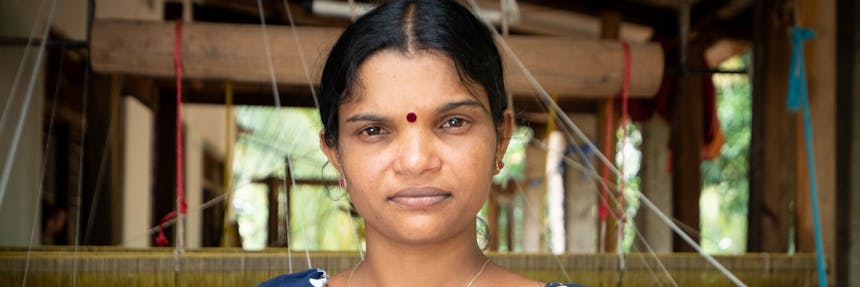
Aged 19, Kirupalini was hit by shrapnel from a bomb blast and has a visible welt in her arm as a daily reminder. Towards the end of the war there was major displacement within the country and Kiurpalini, her parents and her seven siblings had to quickly leave the safety of their own home, before it was razed to the ground. She adds: “I can’t count the number of places we moved to, sometimes it was two days here, a week there, but eventually we ended up in Menik Farm camp for six months.”
It was at this camp where she married her school friend and she quickly fell pregnant. Sadly, he left her when she was only three months pregnant. Her son, now aged eight, has a brain injury and attends a special needs school. She glows with pride when she speaks about her son and pulls out her phone to show pictures, adding: “I am father and mother to my son and now, thanks to my business, I can buy him what he needs.” She has also become President of the Special Needs Society where members can save money together and share their experiences and support one another.
Chrysalis training programme
Although Kirupalini’s 70-year-old father is a weaver, she chose to learn the trade through a training programme run by Chrysalis, CARE’s affiliate in Sri Lanka. She explains: “During the training we each had to make ten six-metre saris in two months. I made mine in one month.”
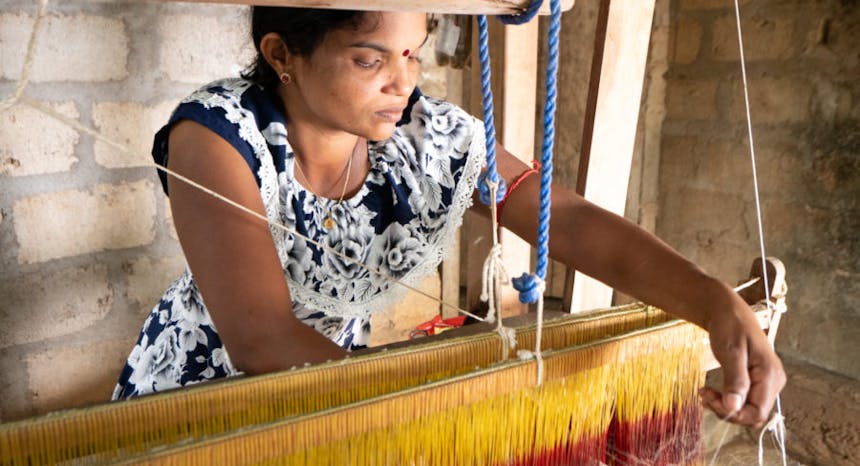
Her speed and accuracy is clear, even to the untrained eye, as we watch her working the loom. Following the practical training she was given a hand loom by Chrysalis, through CARE’s Women in Enterprise programme, funded by H&M Foundation.
With her newfound skills, Kirupalini trained her sister on the new handloom after which her sister also received her own loom. Adjustments were quickly made to their home to fit in the new looms, which has now reached four. They have now developed a small weaving collective, consisting of her father, sister, a neighbour and Kirupalini.
Developing self-confidence
Chrysalis continued to support Kirupalini through training where she learnt bookkeeping and marketing and grew in self-confidence. She explains: “Before, I thought that all income was profit, but thanks to the training I learnt how to separate my income from my profit. I used to be afraid of talking in front of others but now I have the confidence to speak out.”
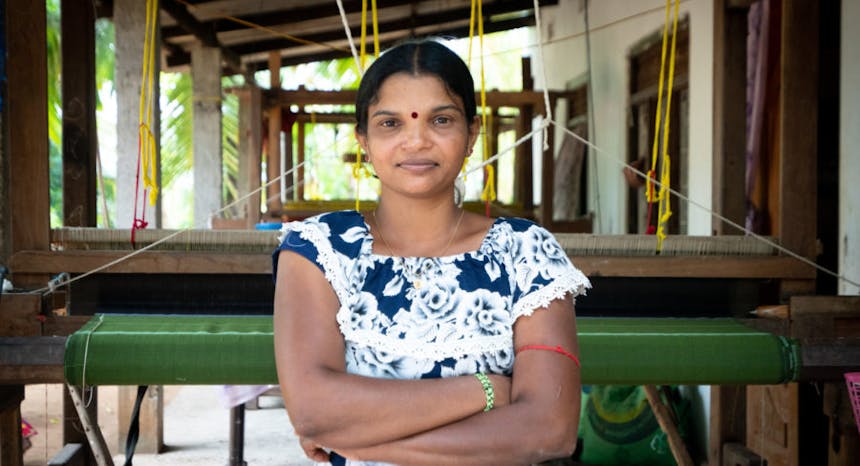
Her public speaking skills are now being put to good use as she has become President of the Pandiyankulam Weavers Cooperative. She adds: “Before I used to work in the hot sun in the paddy fields and now I’m happy in my work and I can buy what I want, when I want.” Thanks to her business she has also been able to take out a small bank loan to buy a motorbike which she uses for marketing and to transport raw materials.
Kirupalini is deeply proud of all that she has achieved against the odds, adding: “I have proved that a woman-headed household can have the same standard of living as a male-headed household.” Her advice to other women thinking of setting up a business is: “If you have a chance, you have to take it. Have perseverance and love your work!”
The affects of the coronacrisis
The COVID-19 pandemic is affecting Kirupalini’s business as she cannot get the raw materials and equipment needed to keep the business going. Marketing opportunities are also significantly limited. She explains: “I am trying not to lose heart due to the loss of income during COVID-19 and I am anxiously waiting for the day I can resume my work. We also have to seriously think of alternative ways to generate an income.”
As she looks to the future it is clear that she has great ambitions, adding: “My dream is to have a factory, I want to grow my customers and employ more local people.” She concludes: “Women entrepreneurs need the skills, competency and a safe environment to succeed. Perseverance and self-confidence are also very important.”
